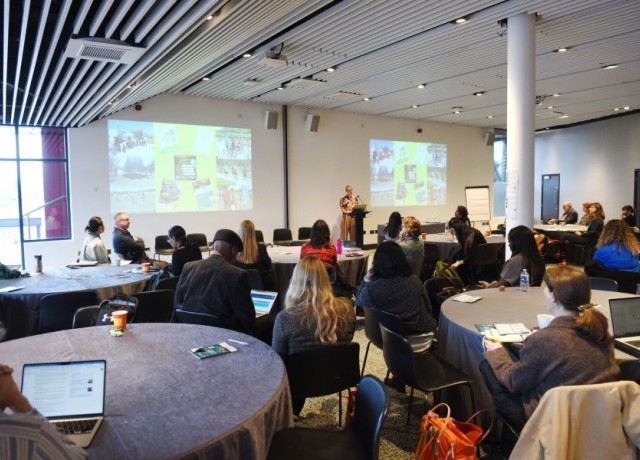
Advisory Group
Our Advisory Group features esteemed members from the fields of architecture, urban design and planning, public health, science and research, and health policy. They provide a valuable sounding board for the organisers in developing the Congress and its themes.

Lord Nigel Crisp
Independent crossbench member, House of Lords, UK
Lord Nigel Crisp is an independent crossbench member of the House of Lords where he co-chairs the All-Party Parliamentary Group on Global Health. He also co-chairs Nursing Now, the global campaign on nursing.
He was previously Chief Executive of the English NHS and Permanent Secretary of the UK Department of Health – the largest health organisation in the world with 1.3 million employees – where he led major reforms between 2000 and 2006.
Lord Crisp is a Senior Fellow at the Institute for Healthcare Improvement, an Honorary Professor at the London School of Hygiene and Tropical Medicine and a Foreign Associate of the US National Academy of Medicine. He was formerly a Distinguished Visiting Fellow at the Harvard School of Public Health and Regent’s Lecturer at Berkeley.
His publications on global health include Turning the world upside down – the search for global health in the 21st Century; Global Health Partnerships; One World Health – an overview of global health after Global Health Partnerships; and, edited with Francis Omaswa, African Health Leaders – making change and claiming the future. He described his time as Chief Executive of the NHS in 24 Hours to Save the NHS – the Chief Executive’s account of reform 2000 – 2006.
A Cambridge philosophy graduate, he worked in community development and industry before joining the NHS in 1986. He has worked in mental health as well as acute services and from 1993 to 1997 was Chief Executive of the Oxford Radcliffe Hospital NHS Trust, one of the UK’s leading academic medical centres.
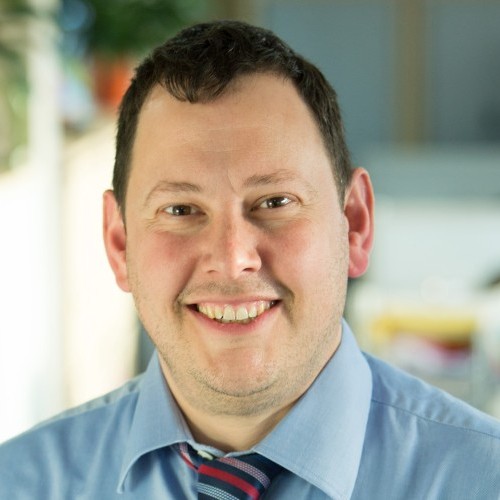
Matthew Ashton MPH, MBA
Director of public health, Liverpool City Council, UK
Prof Ashton was appointed director of public health for Liverpool City Council in April 2020 in a joint appointment with the University of Liverpool, where he is an honorary professor in the Department of Public Health and Policy.
He leads a team of 30 people in the local authority, covering a range of public health activities, including the commissioning of public health services, health protection, health improvement, healthcare public health, embedding health in all policies approaches, and addressing the wider determinants of health.
Matt led on the response to the Covid-19 pandemic for Liverpool, and his efforts have been recognised nationally through the award of the Faculty of Public Health’s presidential medal in 2021, and also the Chief Medical Officers' National Impact Award in 2022.
Matt is passionate about bringing together the best people and partnerships in the region to improve health and wellbeing and reduce inequalities in local communities.

Lord Andrew Mawson
Chair, 360 Degree Society, UK
Lord Andrew Mawson is a leading British social entrepreneur. He became Chairman of Well North Enterprises in 2019 following the success of the Well North programme, which Andrew led from 2015 – 2019. This was a Public Health England initiative which brought together the public and private sectors, and local communities to improve the health of people living in some of the most deprived parts of the North of England. Well North has now evolved into 360 Degree Society, a social business driving a national mission to put people at the heart of places and create health and wealth outcomes for communities across the UK. So far, the 360 Degree Society team has grown 15 Innovation Platforms across the country. Andrew is perhaps best known for founding the Bromley-by-Bow Centre in East London, the first working example of a fully integrated primary health care facility in the country. The centre today has over 287 staff, 97 businesses it has built with local people, and is responsible for 55,000 patients across Poplar. The centre is visited by over 2000 people a year from across the country and internationally. The 360 Degree Society has grown out of this 40-year track record and is now taking the principles originally developed at the Bromley by Bow Centre and working with partners to apply them in challenging communities across the country. Andrew, also founded Community Action Network (CAN) in 1997, a national programme for social entrepreneurs, Poplar Harca (one of the country's first housing companies) and Leaside Regeneration Ltd, which brought in over £100 million investment into the Lower Lea Valley. Andrew has now “graduated” from most of these ventures and each of them continues as a successful organisation. Through 360 Degree Society and Andrew Mawson Partnerships, Andrew works alongside a leading national thinkers, entrepreneurs and doers to grow and replicate his approach and successes including the national Science Summer School with Professor Brian Cox. In 2012, Andrew was made a Freeman of the City of London. He is also the author of the book, “The Social Entrepreneur: Making Communities Work.” Andrew’s work is also featured in Lord Crisp’s latest book (former CEO of the NHS) ‘Health is made at home; hospitals are for repair’. Andrew and his partners wrote the first paper proposing that the Olympic Games be brought to East London in 2012. He was involved in the Olympic project for 19 years from day one. He was a Director of the Olympic Park Legacy Company (OPLC) and then the London Legacy Development Corporation. Andrew Chaired the Regeneration and Community Partnerships Committee for 10 years on both boards, stepping down in 2018. Since the Games this development corporation has planned, developed, and managed the Olympic Park in East London and is creating a lasting legacy from the 2012 Games. The new £1.1billion East Bank campus development has brought to the Park the Victoria and Albert Museum, University College London, the BBC and Sadlers Wells, the London College of Fashion to name a few. This £1.2 bn project was Andrew and Paul Brickell’s original idea in 2006, which was an attempt to build an Innovation District in the heart of the east end of London based on the Bromley principles, bringing together business and social entrepreneurs. The project was backed by the then Mayor of London, Boris Johnson, when he was Chairman of the London Legacy Development Corporation. Under the AMP banner, Andrew co-founded One Church 100 Uses CIC and launched the Water City Group to create and implement a vision for East London revitalised by the opportunities of the 21st Century and the 2012 Olympic Games. Andrew was made a life Peer in 2007 in recognition of the social impact of his work, and he now sits as an independent Crossbench Peer in the House of Lords.

Sunand Prasad OBE
Programme director, European Healthcare Design; Principal, Perkins&Will, UK
Sunand Prasad is a principal at Perkins&Will. While designing across several sectors, he has been consistently engaged in healthcare and sustainability for four decades. At the core of his architectural practice, alongside interdisciplinary collaboration, Sunand holds a passionate belief that expertise and aesthetic judgement are most effective in creating truly successful environments when they are catalysed by the everyday experience of people.
Sunand has been active in the wider built environment industry, particularly championing low-carbon, regenerative design, and until recently, as chair of the UK Green Building Council. He was President of the Royal Institute of British Architects (RIBA) from 2007 to 2009, campaigning for action on climate change. He was founding member of the UK Government’s Commission for Architecture and the Built Environment; a London Mayor’s design advocate; a trustee of the Centre for Cities; and Chair of the trustees of Article 25, the humanitarian architecture charity. He currently chairs the Editorial Board of the Journal of Architecture and the External Advisory Board of TRUUD, a major research project on the fundamental links between health and urban development. He has written widely on architecture, sustainability and healthcare design, such as the book 'Changing Hospital Architecture'.
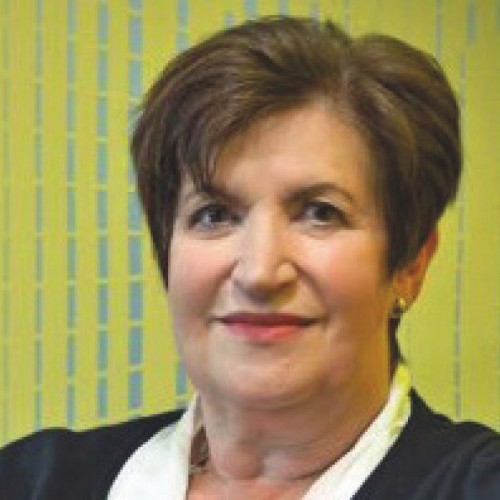
Beatrice Fraenkel
Design regeneration and health consultant; Trustee, Design Council, UK
Beatrice is an industrial designer and ergonomist with particular expertise in designing systems and products aligned to end user requirements. Her early career was in design, ergonomic research and teaching at UMIST and Liverpool University. Her public-sector life has always involved regeneration and economic development schemes at a local and regional level – first as chair of the Rope Walks Partnership in Liverpool, then as chair of Renew NW. Beatrice was a non-executive director of Liverpool Health Authority, then chair of South Liverpool Primary Care Trust. Beatrice is a CQC special advisor specialising in governance and leadership. She is a trustee of the Design Council and an Hon.FRIBA. Her past roles have included chair of a housing association, trustee of Tate Liverpool, and chair of the Architects Registration Board.
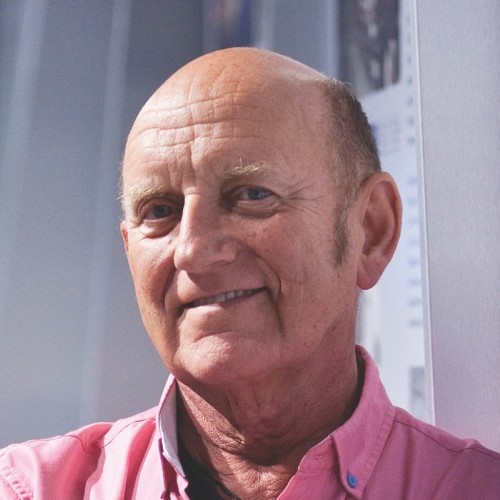
Chris Liddle
Group chair, HLM Group, UK
Chris is HLM Group chair and Strategic director of HLM's custodial, justice and defence sectors. He is hands-on in many of HLM's flagship projects and a champion of social architecture.

Esme Banks Marr
Strategy Director, BVN, UK
Esme is Strategy Director at BVN. She specialises in the intersection of human behaviour and the built environment. With a career spanning design, research, communications, and business intelligence, she translates data into actionable insights that shape the future of spaces and places. Esme has worked across diverse sectors, exploring how strategic briefing influences outcomes at every scale - from individual wellbeing to system-wide efficiency. Her expertise lies in bridging gaps between disciplines, ensuring environments are not just functional but deeply responsive to human needs. She is passionate about understanding how people interact with space and how this, in turn, impacts experience. A recognised commentator on the built environment, Esme has contributed to global conversations and publications on design and strategy, the future of work, sustainability and regeneration and digital transformation. Committed to breaking down industry silos, Esme integrates research, data, and strategy with design, to create holistic and future-focused environments. Her work ensures that the built environment evolves in a way that enhances both human experience and organisational outcomes.
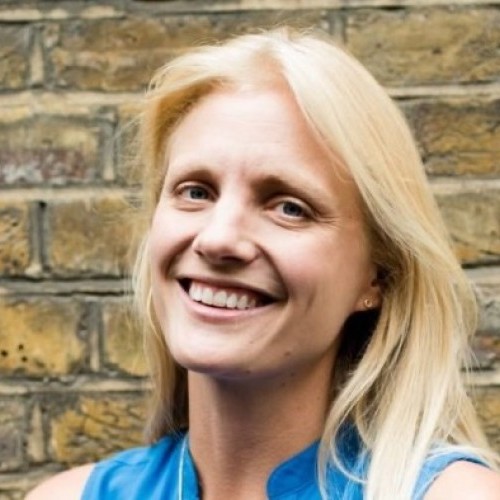
Antonia Cotton
Partnerships manager, Urban Health 360, UK
Antonia is partnerships manager for Urban Health 360.
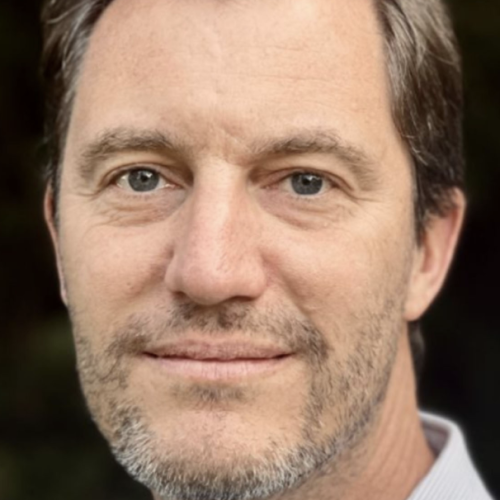
Matthew Morgan
Co-founder, Director, Quality of Life Foundation, United Kingdom
Matthew Morgan is the Director and co-Founder of the Quality of Life Foundation. He is responsible for setting strategy with the Board of Trustees, overseeing the Foundation’s commercial services and delivering lasting impact with the Quality of Life team, itself focused on highlighting the impact of the built environment on people’s lived experience.
With over 20 years’ experience in writing and communications, Matthew has previously worked with architects, engineers and developers; in book and magazine publishing; and with charities and start-ups. He is a participant on a number of advisory boards and chairs a multi-stakeholder group that advises on community engagement as part of the UKRI-funded CCQOL (Community Consultation for Quality of Life) project.
A published author and mental health advocate, Matthew is particularly interested in how communities are formed and their effects on people’s physical, social and psychological wellbeing, an interest he developed while growing up in an intentional community in Kent.
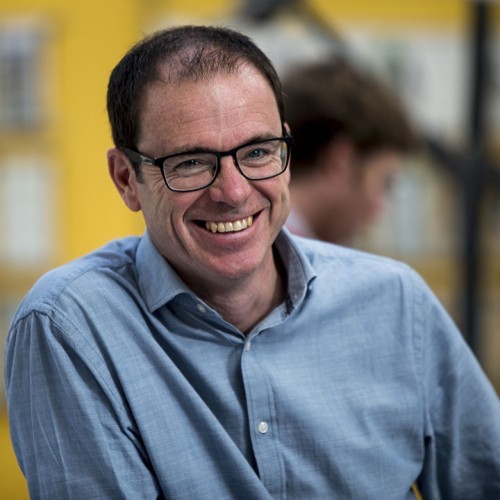
Paul Bell
Principal, Ryder Architecture, United Kingdom
Paul completed his architectural education at the Mackintosh School of Architecture, Glasgow in 1992 and has led several high profile urban design, health and infrastructure projects. In 2006 he established Ryder’s Glasgow office and led the early development of the Hong Kong office. Prior to joining Ryder, he worked with Terry Farrell for 11 years in London and Hong Kong.
Paul has spoken around the world on sustainable healthcare design and blurring the boundaries of healthcare to address health equity. Paul brings his expertise of leading integrated project teams to successfully deliver major healthcare projects. His passion for delivering design of the highest quality is recognised by excellent client testimonials and project award nominations.
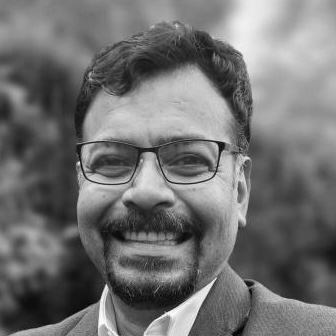
Deb Upadhyaya PhD, MBA
Director of placemaking and new communities, AtkinsRéalis, UK
Dr. Deb is a professionally trained architect, urban designer, and planner leading the delivery of exemplar large-scale and complex housing regeneration and garden communities in both the public and private sectors (UK and India) for over 25 years.
A passionate advocate of sustainable urbanism, delivery of quality places, and value creation through collaboration/design-led innovation, he champions inclusion and diversity as the fundamental building blocks of delivering resilient built environments. He works as Director at AtkinsRéalis. In a voluntary capacity, he serves as a board director at The Academy of Urbanism, a panel member for Sheffield, Essex, and Greater Cambridgeshire Design Panels.
He coaches and mentors built-environment professionals and pursues practice-led research on delivering ‘quality’ and ‘at pace’ in partnership with the built environment sector on ‘sustainable development goals, smart technologies, and climate change’.
A Chartered Town Planner, Chartered Manager, Recognised Practitioner in Urban Design, and a Fellow at the RSA, he has a Doctorate in Philosophy on ‘Changing Paradigms of Evolving City Centres’ and an Executive MBA from the University of Sheffield.

Sasha Karakusevic BDS, MBA
Project director, NHS Horizons; Senior fellow, Nuffield Trust, UK
Sasha has spent his career working in the NHS, initially in dentistry and maxillofacial surgery.
He has spent 20 years at executive level in hospital systems and has a particular interest in the development of integrated systems. He now works for the NHS Horizons team supporting a wide range of change programmes.
His current focus is on increasing the role of physical activity in health, working on a commission to support Sport England’s ‘Uniting the Movement’ strategy.
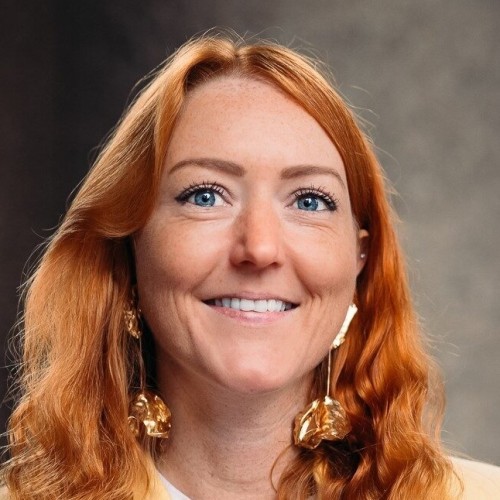
Rosie Cade
Founder, Rising Tide, UK
Rosie is a respected voice in built environment transformation, with 20+ years’ experience spanning housing, development, and finance. Building on senior roles at global advisory firms and regeneration specialists, she established Rising Tide as a pan-European strategic advisory practice for pioneers in the built environment navigating change, supporting founders and management teams to reshape strategy, clarify their positioning, unlock investment and scale impact.
Rising Tide’s partners are leading networks, funders and businesses, including C40 Cities, Common Projects, Built by Nature, the Circular Buildings Coalition, Dark Matter Labs, European CLT Network, and Wood Knowledge Wales.

Michael Wood
Head of health economic partnerships, NHS Confederation, United Kingdom
Michael Wood is the Head of Health Economic Partnerships at the NHS Confederation.
Prior to this he developed and held the role of NHS local growth adviser from 2015, for some of this time working as deputy local growth consultant for the Higher Education Funding Council for England (HEFCE).
Before that, he was senior European policy manager at the NHS European Office for more than seven years. He has also worked for the Parliamentary and Health Service Ombudsman and for a Member of the European Parliament in Brussels.
As Head of Health Economic Partnerships, Michael advises NHS leaders nationally and locally on policy, strategy, partnerships and funding relating to the local economy, including in areas such as skills and workforce, estates, innovation, population health and finance.
Michael currently holds national advisory positions on the Civic University Network and the National Civic Impact Accelerator, as well as the Midlands Engine Health Board. He also advises NHS London on the development of its NHS Anchor Network.
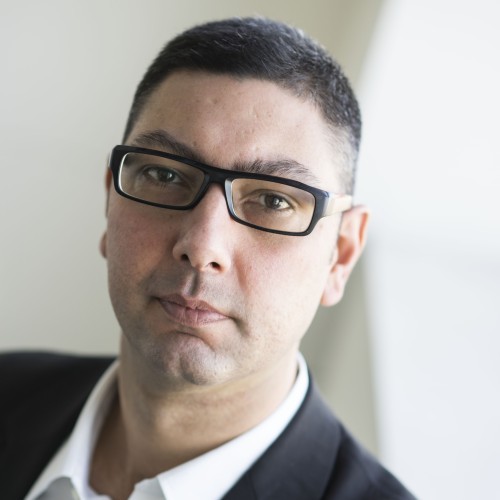
Carlo Castelli
Founder, Urban Purpose, UK
Carlo Castelli is an architect, masterplanner and city solutions expert with more than 25 years’ experience delivering innovative urban solutions and the founder of Urban Purpose.
Carlo is passionate about the purpose of cities. He leads and advises on major international and interdisciplinary urban projects at various scales, with particular expertise in integrated spatial and socio-economic strategies, underpinned by transport and infrastructure oriented development. He is a strategic advisor on purposeful visions for cities, capacity development and international co-operation between cities and local governments.
He advocates a ‘purpose case’ approach to city-making, which aims to put quality of life and wellbeing at the core of the holistic integration of economic, social, environmental and cultural values. Carlo has recently acted as the chief technical advisor of the UNDP capacity-building and strategic urban advisory programme with the Riyadh Regional Municipality in Saudi Arabia. He has voluntary roles such as the co-chair of the ULI Europe Urban Regeneration Council and the LSE Global Real Estate Group’s Executive Committee.
Carlo publishes on social media and speaks regularly in international conferences, as well as providing strategic advice and leadership for some of the world’s most interesting urban contexts and projects, including the New London Agenda with the NLA; a regeneration project in Newham, London; the Edinburgh City Centre Transformation Plan (with Jacobs); the Strategic Process towards the Development Agreement for the Scali Ferroviari in Milan with Sistemi Urbani, (with AECOM); Al Mouj Muscat, Oman (with AECOM); the Melbourne Suburban Rail Loop (with Jacobs); Meridian Water regeneration project in London (with Jacobs); and the KKIA Concept Masterplan in Riyadh (with AECOM).

Marina Milosev
Director of urban strategies and innovation, Beyond the red line, UK
Marina brings over a decade of experience in urban planning, with a strong background in strategic planning and a deep understanding of legislative urban contexts. She has worked in senior positions shaping strategic planning frameworks on a range of emerging topics for the delivery of some of the largest urban regeneration projects, including the London Olympics. Her work is driven by a commitment to social justice and gender equality, and she specialises in translating international agendas such as the SDGs and bringing into forward-looking planning policies and practical urban frameworks shaping healthier and more equitable urban environments.
Marina is internationally recognised for her work on gender equality and has led the development of the UK’s first planning frameworks explicitly focused on creating places that meet the needs of women and girls, advancing gender equality. She is one of the leading voices in the UK advocating for the needs of women and girls to be embedded within the urban development process. Central to her approach is integrating lived experience throughout planning, from policy development to development management, using existing mechanisms to deliver systemic change and lasting improvements to safety, access and wellbeing.
Marina has also worked in crisis and post-conflict urban recovery contexts through her work with the United Nations in Ukraine. She is the co-founder of Beyond the Red Line and advises international and national organisations on inclusive placemaking.

Sarah Deedat
Vice-president of behavioral design, Lirio, USA
Sarah Deedat, PhD, is currently vice-president of behavioral design at Lirio, where she leads a multidisciplinary team of behavioural scientists to apply behavioural science to real-world health challenges. She has extensive experience designing behaviour change interventions across areas such as chronic disease management, wellness, and primary prevention. Her work spans both patient- and clinician-focused strategies and has been implemented in a variety of settings – from in-person care to digital platforms – across the UK, North America, and Asia.
Sarah holds a PhD in Medical Geography and is particularly interested in how place and context shape health behaviours, a perspective that informs her approach to designing more effective, person-centred interventions.
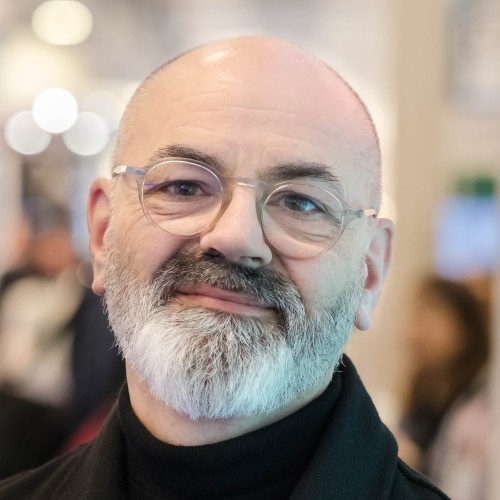
Ibrahim Ibrahim
Managing director, Portland Design, UK
Ibrahim is a designer, retail strategist, futurist and author. He has a degree in Aeronautical Engineering and a Masters Degree in Industrial Design from The Royal College of Art and Imperial College, London.
As the Managing Director of Portland Design which is part of the Perkins&Will global architecture and design group, Ibrahim leads a team of highly strategic and creative thinkers and designers.
Over a career spanning 30 years Ibrahim has worked on a broad range of projects covering retail, F&B, consumer brands, shopping centres, airports, train stations, mixed use developments and urban regeneration. He works with a wide range of clients worldwide, his work covers trend analysis and insights, strategy definition, place branding and experience masterplanning.
Ibrahim’s understanding of consumers’ relationship with brands and their engagement with physical and digital environments lies at the heart of his work. This understanding is built through deep insights into the future of consumerism, retail and brands and their impact our town centres and high streets He is a regular speaker at conferences and a frequent contributor to journals and trade press. He has written for The Economist ‘Insights’. He is also a published author with his book, ‘Future Ready Retail’ which explores the future of retail and it’s impact on brands, the consumer experience, our high streets and town centres.
When he is not overseeing the ‘ideas fuelled’ studio at Portland, Ibrahim is normally found in his workshop making sculpture and furniture, fiddling with classic cars or managing his woodland whilst riding his tractor!
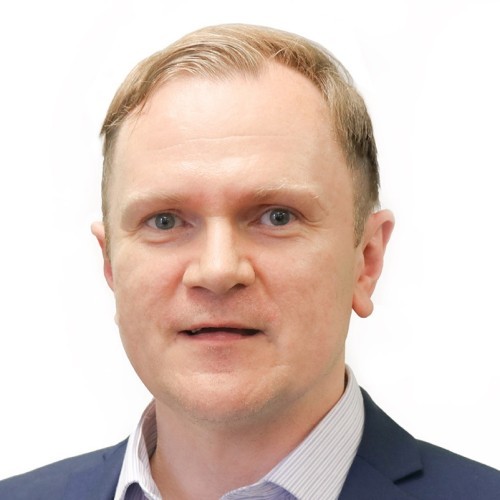
Huw Edwards
CEO, UK Active, UK
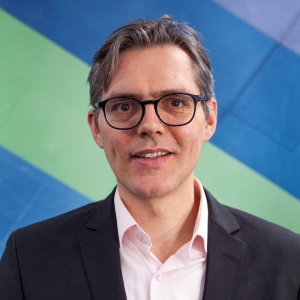
Coen van den Wijngaart
Manager, real estate development; member, management committee, Anculus, The Netherlands
Coen van den Wijngaart is manager of real estate development at Anculus and a member of its management committee. He specialises in overseeing the development, redevelopment, and renovation of public-sector real estate projects, primarily serving educational institutions through delegated client management. Anculus provides strategic portfolio management with a focus on sustainable and resilient infrastructure. Coen holds a degree in architectural engineering from Delft University of Technology and an executive MBA from Vlerick Business School, Brussels. With over 25 years of experience as an architect, entrepreneur, and strategic real estate developer, his expertise lies at the intersection of innovative architectural design, health and wellbeing in the built environment, and sustainable development. His research and professional interests include the translation of architectural and strategic concepts into healthy, inclusive, and future-proof environments for living, learning, working, and care. His career is marked by a commitment to advancing knowledge and practice in healthy and sustainable public real estate development.
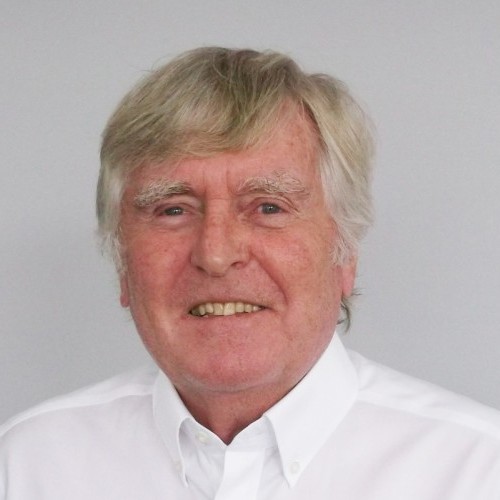
Jim Chapman
Independent design consultant, UK
Jim Chapman is a chartered architect and urban designer, with more than 36 years' experience as a consultant delivering a wide range of projects in many sectors. In 2006, he established an independent consultancy, which focuses on supporting and advising clients on the delivery of high-quality projects.
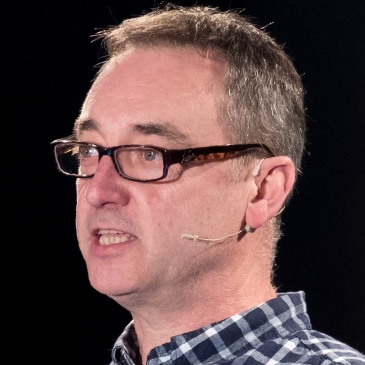
Graham Marshall
Director, Prosocial Place, United Kingdom
Graham is an urban designer and landscape architect of longstanding. His work spans research and practice from strategy to detailed context of specific regeneration programmes. He has a particular interest in the meaningful involvement of community members in regeneration and the development of lifetime conversations that reconnect people to their places. He is the Chair/Mentor of the Backin' Birkenhead Town Team that is delivering a community-led Place Plan for Central Birkenhead.



